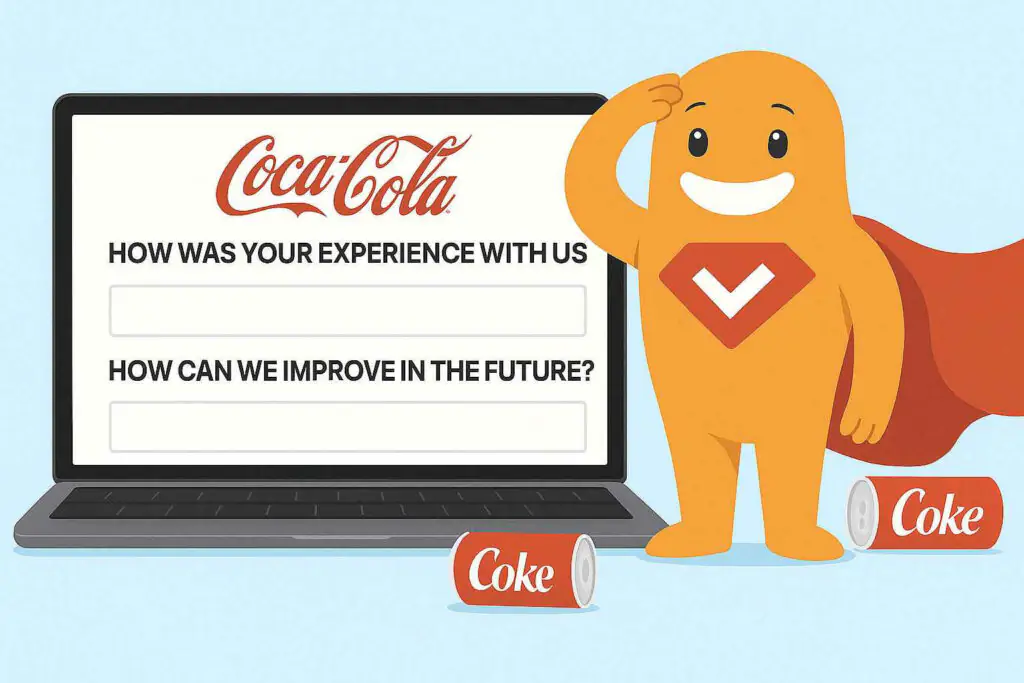Do you swear to tell the truth and nothing but the truth? It’s tempting to begin each of our surveys this way, but unfortunately, this isn’t a court of law! When conducting a survey, researchers simply have to “take people’s word for it.” Of course, there are some ways to improve honesty on surveys which we’ll cover later. First, let’s take a look at the reasons why people lie on surveys.
Create your perfect survey, questionnaire, or poll now!
Statistics on Lying and Honesty on Surveys
It’s hard to determine the number of people who are lying on surveys; after all, they may lie about lying! The most recent data with statistics on lying and honesty on surveys comes courtesy of the BBC, which states: “80% of people say they always provide truthful answers to surveys.” The percentage does drop to 66%, however, when questions are asked that pertain to someone’s “intimate life.” Interestingly, the polling also suggests that respondents were most likely to be truthful about political questions, with more than 90% saying they were likely to tell the truth.
Reasons People Lie on Surveys
Why are people dishonest on surveys? Here are ten of the most common reasons for lying on surveys.
Improving Their Feelings of Self Worth
A survey is an opportunity for someone to give their self-worth a little boost by exaggerating aspects about themselves. For example, someone may inflate their salary or job title to appear better paid or more important within their company. These types of “white lies” are so common in everyday life that they can spill over into survey answers too.
Providing Socially-Desirable Answers
People tend to understand that there are generally “right” answers to certain questions. For example, people know it reflects well on them if they state that they regularly give to charity. They also know most people see voting as a civic duty and disapprove of those who don’t exercise their right. So, a person may state that they give to charity or vote, even if they do not. It simply puts them in a better light.
Getting Defensive About Sensitive Topics
Survey respondents can get touchy when it comes to sensitive issues, such as drugs, sexual relations, and religion, or hot-button topics, such as abortion, race relations, or gun ownership. They may be wary of divulging their true feelings because they don’t want others to know. They may be embarrassed or ashamed by their true nature, as it may make them appear “old-fashioned” or “out of touch with society.” As a result, they lie on the survey even though their answer goes against their beliefs.
Concerned Over Anonymity or Confidentiality
People don’t always trust that their answers will remain anonymous or confidential (learn about the differences between the two here). This is especially true if the results could harm them if they got into the wrong hands (e.g., questions about infidelity, criminal activity, or job hunting).
Wanting To Be Polite
Sometimes, people are just afraid of “hurting someone’s feelings” and want to say what they think the researcher wants to hear. For example, they may state that a new product is appealing to them, even though it’s not. While this is certainly kind of them, it ultimately harms the research findings.
Trying To Get an Incentive
A number of surveys offer a reward just for taking them, usually in the form of a gift card or discount. Some people may lie about themselves in order to be selected for the survey. For example, if it’s a survey on shopping habits, they may say they’re the primary shopper even though they’re not. They may also lie on demographic questions if they think it will help them be selected for participation. For example, if it’s a survey on retirement, they may assume the researcher is looking for older participants so they may lie about their age.
Trying to Influence Outcomes
There are numerous ways people may try to influence outcomes. For example, in a political poll, they could state that they’re voting for the opposite party they belong to, hoping that results favoring that party will spur their own party into action to ensure a victory. Or, they may say that they wouldn’t spend more than $20 on a product even though they’d spend much more than that, in hopes that when the product is launched it will be at the more affordable price point.
Intentionally Being Malicious
Why would someone want to intentionally skew survey results? Perhaps they don’t like the company conducting the survey. Maybe they don’t like the way questions are worded. Or, perhaps a website is asking them to answer some questions in order to get to the content they’re seeking; out of annoyance, they may intentionally lie to skew results.
Making an Honest Mistake
To err is human! Many surveys ask people to recall a past experience, and people may have forgotten the details and accidentally answer incorrectly. Other times, surveys ask people to “predict the future,” for example, asking them how likely they are to purchase a product in the future. A person may state that they’ll be in the market for a new car in the next six months, but then a layoff changes their financial situation. They weren’t intentionally lying, but their plans did ultimately change.
7 Ways to Get People to Tell the Truth on Surveys
With all these reasons to lie on a survey, you might be wondering, “are surveys reliable?” Yes! Of course, there is always bound to be some degree of lying (which is why most polls and surveys have a margin of error/confidence interval based on sample size). However, there are seven ways you can get more accurate and honest responses on your surveys.
1. Consider “Trigger” Questions
Trigger questions are those that may give respondents reason to lie (we also call them the 3 B’s: behavior, beliefs, and belonging). While it’s likely that you’ll need to ask questions that relate to the 3 B’s on some surveys, it’s important to be careful how you word them. Read more in our blog on How to Ask a Sensitive Question on a Survey.
2. Emphasize the Importance of the Research
Too often, people aren’t told why they’re being asked to participate in a survey or how it stands to benefit them. To help ensure honestly, be upfront about the reason for the survey and why they should care about it. For example, if you are conducting product research, make it clear that feedback will help create a better product; if you’re asking about legal or political issues, be sure to state that their input could impact laws and regulations.
3. Avoid Leading Questions
Leading questions intentionally or unintentionally persuade a participant to one side or conclusion. In the example below, the wording may pre-condition the participant to think of customer service as helpful.

Leading questions also occur if more weight is given to the positive or negative side of a scale:

4. Add Some Misleading Answers and Redundant Questions
Misleading answers and redundant questions can catch survey liars. For example, if you are asking about someone’s brand awareness, you might add a phony brand to the list; if a respondent says they’re aware of it, chances are they’re not being honest. On the other hand, you can ask what appears to be redundant questions, just slightly modifying the question and response. If the answer to both varies greatly, you may have a dishonest respondent.
5. Ask Questions ASAP
As mentioned earlier, people are forgetful. They’re not necessarily being dishonest, they simply don’t remember their past actions or experiences clearly. So, try to survey them ‘in the moment’ or not long after an event or action has taken place. For example, say you want to know what made someone decide to purchase product A instead of product B. You’ll want to survey them as soon as possible while the decision-making process is fresh in their mind.
6. Don’t Offer Incentives
If you’re concerned that people are lying just to get a reward, the simple solution is not to offer incentives. Of course, sometimes incentives are necessary to improve response rates and gain the participation of hard-to-reach audiences. In this case, you’ll want to carefully consider the type of incentives you’ll offer and how you’ll promote them. Read more in our blog 10 Pros and Cons of Survey Incentives + Survey Incentive Ideas.
7. Use Anonymous Online Surveys
Whereas in-person or telephone surveys can cause a person to “clam up” or be untruthful with their answers, most online surveys offer anonymity. This provides a sense of security, resulting in people giving their true thoughts and feelings on any given subject. For web surveys to be anonymous, you’ll forgo asking a person for their name, reconsider questions that could “give someone away” (this is especially true in small sample surveys), and use encryption to block respondents’ IP addresses or email addresses.
Conclusion
I’d like to leave you with this thought from this revealing book that’s a favorite of ours at SurveyLegend.
“Everybody lies. People lie about how many drinks they had on the way home. They lie about how often they go to the gym, how much those new shoes cost, whether they read that book. They call in sick when they’re not. They say they’ll be in touch when they won’t. They say it’s not about you when it is. They say they love you when they don’t. They say they’re happy while in the dumps. They say they like women when they really like men. People lie to friends. They lie to bosses. They lie to kids. They lie to parents. They lie to doctors. They lie to husbands. They lie to wives. They lie to themselves. And they damn sure lie to surveys.”
—Seth Stephens-Davidowitz, Everybody Lies: Big Data, New Data and What The Internet Reveals About Who We Really Are
Face it, lying on surveys is going to happen no matter how well-intentioned and well-crafted the surveys. The goal, of course, is to give people fewer reasons to lie and more reasons to tell the truth. By understanding why people lie, and what motivates them to tell the truth, we’ll be one step closer to getting accurate, honest survey results.
Is lying on surveys a concern of yours? Have some ideas of your own to prevent lying on surveys? We’d love to hear from you in the comments!
Create your perfect survey, questionnaire, or poll now!
Frequently Asked Questions (FAQs)
According to studies, on average 80% of people say they always provide truthful answers to surveys. This percentage can rise or fall depending on the nature of the questions.
Untruthful answers on surveys may be accidental (the respondent simply forgot their experience), intentional (the respondent wants to boost their self-worth or social standing), or malicious (the respondent doesn’t like the company or the line of questioning).
Surveys can be highly reliable when researchers understand their audience, carefully craft their surveys, and precisely word trigger questions (sensitive questions regarding behavior, beliefs, and belonging) that can lead to dishonest responses.





